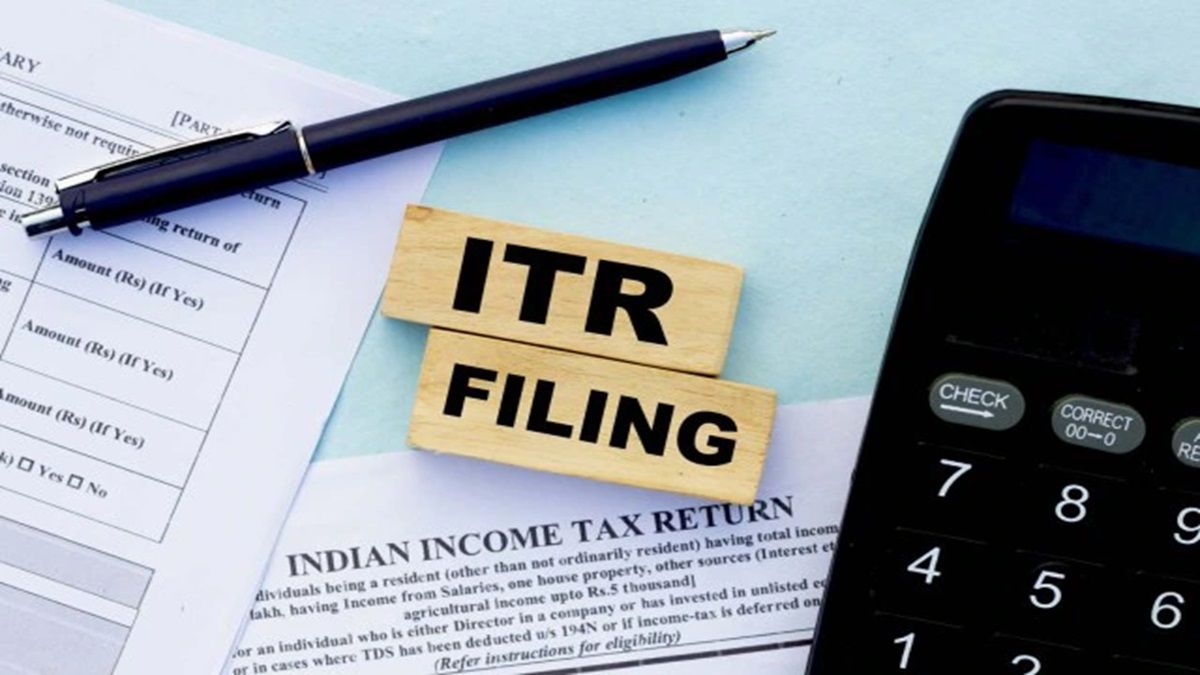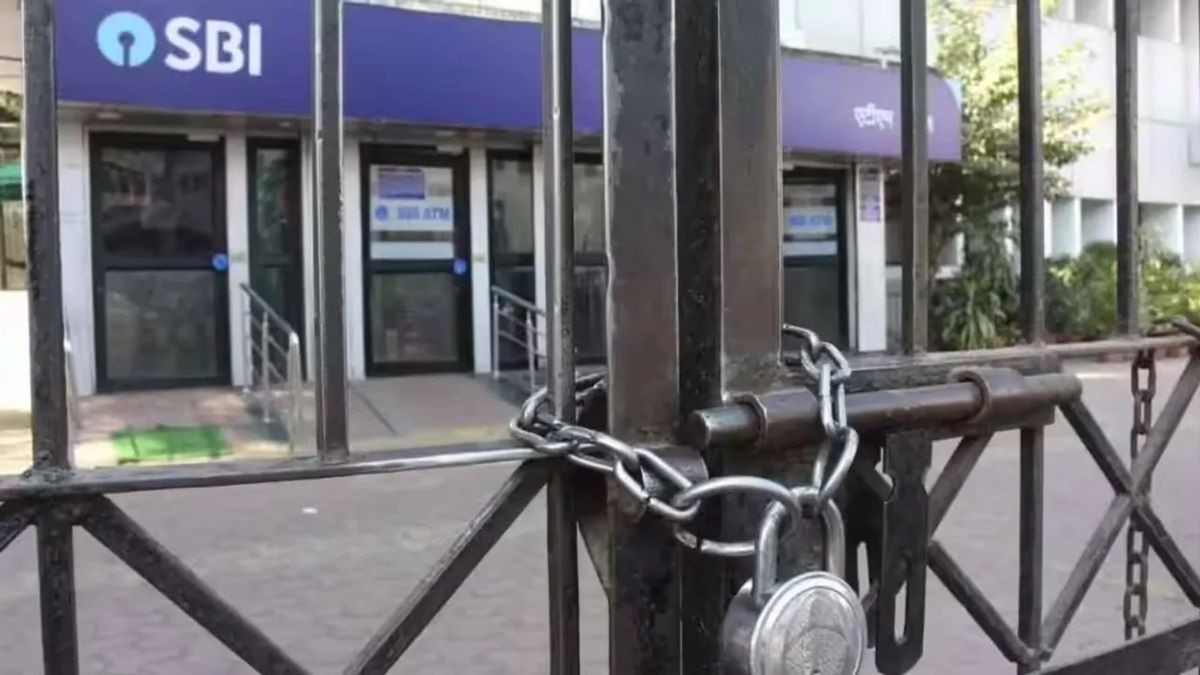Highest Interest Rate on Small Finance Bank’s FD:Fixed Deposit (FD) is considered one of the safest investments due to many advantages. This is a popular option among investors who do not want to take risk on their savings. In this, investors’ money remains safe. By keeping money in FD, investors’ money is locked for a fixed period and they also get a guarantee of return on the deposit at a fixed rate.
Fixed deposits are one of the most popular investment options in India. Most people consider FD as a good option for investment and invest a large part of their savings in it. Before keeping their hard-earned money in any bank’s FD scheme, investors should understand some important things.
Also read: Payment Trends: These will be the top 5 trends for payment in the year 2025, AI will also have a special contribution
Is FD completely safe?
Fixed deposits (FDs) are generally safer than many other investment options, but they are not completely without risk. Investors should be aware of certain risks, such as interest rate risk, inflation risk, and default risk.
interest rate risk
FD interest rates do not increase with time. These do not increase with increase in inflation rate. Thus, if you want to face the rising inflation rate, then FD will not be the right option for you.
tax risk
If your FD interest income exceeds a certain limit, the bank will deduct 10% TDS from your interest. Generally, this limit is Rs 40,000 for general citizens and Rs 50,000 for senior citizens.
liquidity risk
Penalty on lack of liquidity and premature withdrawal
In FD, your money is locked for a certain time, that is, you cannot withdraw it immediately. This is a safe investment, but your money is not available quickly. If you try to withdraw money before maturity to meet your financial needs, the bank can deduct the interest received on FD. Meaning you may have to pay some additional amount to withdraw your money. In such a situation, before investing money in a bank FD, it is important to understand that if you suddenly need money, how much penalty will be charged i.e. how much interest rate will be deducted on withdrawal before maturity.
All these factors can affect the total returns and security of your investment, so it is important to pay attention to these things while choosing an FD.
Also read: EPFO: Government is going to launch ELI scheme soon, if UAN number is not activated by this date, then you will not get the benefit.
What is the specialty of fixed deposit?
According to Bank of Baroda, the investment period in FD ranges from 7 days to 10 years. It varies from bank to bank.
Returns on the invested amount are compounded periodically; This could be quarterly, annually or monthly.
Banks generally offer 0.5% and above returns to senior citizens as compared to their normal customers.
Premature and partial withdrawals are usually charged with penalties.
Once the FD matures, the maturity amount can be reinvested.
To understand whether investing in fixed deposits is the best option, we need to look at the advantages and disadvantages of fixed deposit accounts.
Also read: Belated ITR: The last date for filing returns for these taxpayers is December 31, complete the important work immediately.
What are the benefits of investing money in FD?
There are many benefits of keeping money in FD.
Investors’ money remains safe in FD and there is no risk of money being stolen.
Returns on investment in FD are guaranteed.
To invest in FD, you do not need to pay attention to the market situation.
To invest in FD, you do not need a big investment.
By investing in FD, the risk of default is also less.
Where is the highest interest available on FD?
These days, small finance banks are offering better returns on FD as compared to government and private banks. Investors are getting up to 9% returns on fixed deposits (FD) in these banks. This rate is for those deposits which are less than Rs 3 crore. After understanding all the important aspects related to FD, if you want better returns on your savings, then you can check the list of small finance banks given below.
| Name of Small Finance Bank | Interest rate for common people (%) | Tenure | Interest rate for senior citizens |
| AU Small Finance Bank | 8.00 | 18 months | 8.5 |
| Equitas Small Finance Bank | 8.25 | 888 days | 9 |
| ESAF Small Finance Bank | 8.25 | 2 years to less than 3 years | 8.75 |
| Jana Small Finance Bank | 8.25 | 1 year to 3 years | 8.75 |
| NorthEast Small Finance Bank | 9.00 | 546 days to 1111 days | 9.5 |
| Suryoday Small Finance Bank | 8.60 | Above 2 years to 3 years | 9.1 |
| Ujjivan Small Finance Bank | 8.25 | 12 months | 8.75 |
| Unity Small Finance Bank | 9.00 | 1001 days | 9.5 |
| Utkarsh Small Finance Bank | 8.50 | 2 years to 3 years; 1500 days | 9.1 |
,Note : This list of interest rates for FDs of different tenures has been decided by PaisaBazaar.com. The list has been shared here for the information of the readers. Banks keep changing their interest rates from time to time, hence investors are advised to get accurate information about the interest rates from the official website or branch of the concerned bank before investing money in any of the above mentioned bank FDs.)
Also read: Income Tax Rule Changes 2024: There have been many important changes in the Income Tax rules, these things will have to be kept in mind while filing returns in 2025.
Why do they pay more interest?
Despite being much smaller in base than major banks, small finance banks offer higher interest rates (FD Rates) on their deposits, hence the question arises why? Actually, the reason behind this is that they earn interest from loan business. They usually give loans to those people who are not able to get home loan or vehicle loan from major banks. To raise money for giving loan, they attract FD customers by paying higher interest. At the same time, they also charge more interest on the loan.
The thing to understand here is that major banks refuse to give loans to those people whom they feel do not have strong ability to repay the loan. But small finance banks give loans to such people. Therefore there is also a risk of loan default. Therefore, there is some risk regarding the deposits of these banks. However, the ticket size of their loan is less, hence the risk also reduces.
Also read: e-PAN Alert: Have you also received the mail to download e-PAN card? Don’t make this mistake otherwise you may suffer huge losses.
License is given by RBI
Small finance banks are licensed and regulated by the Reserve Bank of India. RBI itself issues guidelines from time to time for the functioning of SFBs and regularly monitors their operations. Central Bank regulations ensure that SFBs maintain adequate capital adequacy ratios while following appropriate risk management practices. Even after this, before making FD, you can study some things and check its security. To identify risks, it is important to understand the structure of banks, their access to customers and finances.
Check bank rating
Often the FD scheme of Small Finance Bank is rated by credit rating agencies. Credit rating agencies like CRISIL, ICRA and CARE rate SFBs on the basis of their financial stability, asset quality, management efficiency and other parameters. High credit rating indicates that the financial condition is strong and the risk of returning the deposits of the depositors is very low. Whereas it is better to stay away from banks with bad ratings.
Also read: Income Tax Rate Cut: Government may reduce income tax in the next budget! Those with annual income up to Rs 15 lakh will get relief, what will be the impact on the economy?
How much fund is safe?
Deposits up to Rs 5 lakh in a bank are insured. This amount is insured under the deposit insurance program of the Deposit Insurance and Credit Guarantee Corporation (DICGC). This guarantee is also available on deposits in Small Finance Bank. This means that if you have deposited your money in any form in a small finance bank, then the maximum deposit up to Rs 5 lakh will be safe and if the bank defaults due to any reason, you will get up to Rs 5 lakh. It is better that you do not deposit more than this amount in a single bank.
(Source: Bank Websites, Bank Bazaar, Paisa Bazaar)







